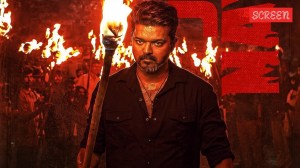CMs raise mistrust at security meet
Meet: PM,PC strike conciliatory note but CMs hit back on unilateral moves.
The chief ministers conference on internal security today got converted into an angry discussion on the federal nature of governance. As was expected,the many non-Congress state governments slammed the Centre for not trusting them enough or treating them with respect.
While both Prime Minister Manmohan Singh and Home Minister P Chidambaram stressed on the need for states to look beyond their own boundaries in matters related to internal security,powerful non-Congress chief ministers such as Narendra Modi of Gujarat,J Jayalalithaa of Tamil Nadu and Naveen Patnaik of Orissa blasted the Centre for taking unilateral decisions on subjects falling under the domain of the state governments.
The creation of the National Counter Terrorism Centre (NCTC) a bone of contention was not on the agenda of the meeting,and yet it weighed heavily in the speeches of the chief ministers. Modi said the Centre was fuelling mistrust by taking unilateral decisions on the NCTC while Jayalalithaa went a step further and accused the Centre of treating the states as no more than glorified municipal corporations when it came to allocation of funds.
Sensing the mood,both the Prime Minister and Chidambaram early on struck a conciliatory note,using their opening speeches to try and pacify the states.
Internal security is a matter in which the states and Centre must work together,hand in hand,and in harmony, Singh said in his address,while acknowledging that the primary burden of dealing with law and order was with the state governments. He promised all help to states in strengthening their forces to deal with such situations.
This did not prevent the chief ministers from launching an assault on the Centre. Modi even raised the tension between the government and Army,saying internal security was intertwined with the external security scenario and the armed forces play an important role in this. It is unfortunate that the Union government has failed to instill faith and confidence about our defence preparedness in the common man, he said. Any lacunae in our defence capabilities on account of resource constraints,demoralisation of the rank and file and tensions between the civil and military wings is bound to have an adverse impact on the internal security.
Talking about the mistrust between the Centre and states,Modi said that be it on the NCTC,or the amendments to the BSF Act or the RPF Act,the governments actions were fuelling the same.
Such mistrust on matters related to internal security is extremely dangerous, he said later,talking to reporters. I have requested the Prime Minister to take steps at this very meeting to ensure that this gap of trust is bridged immediately. But till such unilateral decisions are taken by the Centre,the trust cannot be restored, Modi said.
Patnaik told reporters that decisions on security matters needed to be taken in consonance with the federal rights of all the states of the country. The new Acts that the Centre wishes to bring must be done in consultation with the state governments. We chief ministers are custodians of democracy and the rights of peoples in our states, he said.
Jayalalithaa said the Centre was always trying to create parallel systems to usurp the powers of state governments. Endeavouring to encroach on state powers,either by creating parallel authorities monitored from the Centre or vicarious operations of state police powers through creation of Centre-monitored caucuses within the states,as was envisaged in the Railway Protection Force (amendment),National Counter Terrorism Centre etc,to say the least,is a contravention of the Constitutional provisions which accord the police priority status in the state list, she said.
In his speech,Chidambaram said the nature of the threat to internal security was such that state boundaries cease to have much meaning. The target is the Indian state,and naturally,every constituent of the Indian state,and,in his offensive,the adversary does not recognise state borders. His organisation does not match states territorial jurisdictions. And he makes no distinction between the Central government and the state governments, he said.
Chidambaram also stressed that central and state police forces have often coordinated together to carry out joint operations,and with much success. In 2011,18 terror modules were neutralised and 53 persons arrested. In the first three months of 2012,three modules were neutralised and 11 persons arrested. I wish to underline the fact that one half of the cases were cracked through the joint efforts of the central agencies and the state police concerned. This is the reality: at the operational level,there is no conflict between the central agencies and the state police forces. They work together,consult each other,share intelligence and,when necessary,mount joint operations to apprehend the suspects, he said.
- 01
- 02
- 03
- 04
- 05































